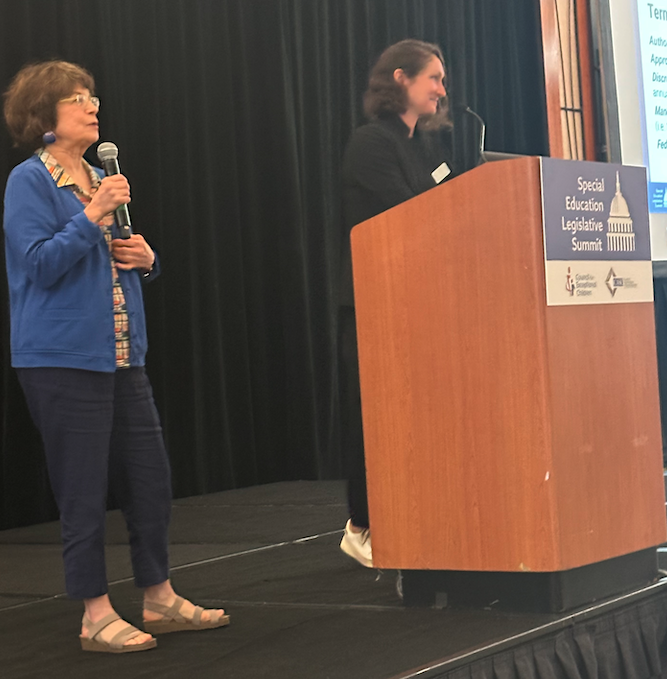Policy & AdvocacyThe Voice for Leaders in the Field of Special Education
CASE actively engages with federal agencies and legislators to champion the needs of students with disabilities, ensuring that leaders in special education have a strong, unified voice. Through preparation, organization, and inspiration, we empower our subdivisions to advocate effectively at every level of government. We also work to expand partnerships with national organizations and individual stakeholders, building collaborative networks that strengthen our collective impact and drive meaningful change.
Amicus Briefs ("Friend of the Court")CASE joined amicus (“friend of the court”) briefs in two cases before the U.S. Supreme Court in its 2024-25 session. For CASE members, these two cases resulted in a “split decision” – one decided for CASE and its partners and the other the opposite. A.J.T. v. Osseo Area Schools (S.Ct., 2025): The question before the Court was whether in discrimination cases against school districts under Section 504 and the Americans with Disabilities Act, families should be required to show the school engaged in “bad faith or gross misjudgment. In other contexts, such cases are decided on a “deliberate indifference” standard.” CASE and its partners argued in favor of the higher standard in the educational context.
Oklahoma Statewide Charter Sch. Bd. V. Drummond (S.Ct., 2025): The question before the Court was whether the First Amendment Free Exercise clause is violated if a state excludes privately run religious schools from the state’s charter school program solely because the schools are religious institutions. CASE and its public school partners argued against allowing religious schools to be public charter schools.
The Court’s decision: On a split decision, with Justice Barrett recusing herself, the Court said it is unconstitutional for a religious school to be considered a “public” charter school. Since this was a 4-4 decision, the ruling only applies in Oklahoma, but certainly this case will be cited when similar cases move forward.
US Department of Education UpdatesCASE has a dedicated webpage in the Members Only section to provide real-time updates and important announcements from the U.S. Department of Education, ensuring members stay informed on the latest developments.
|



